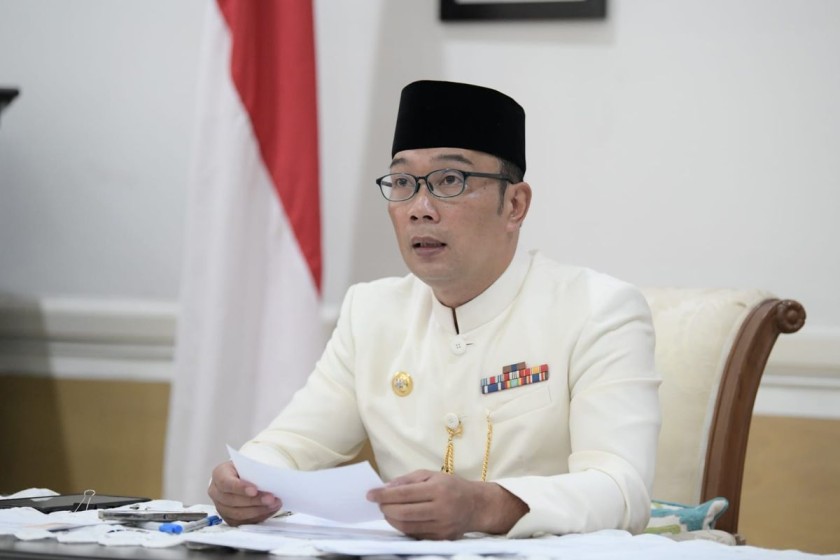Ridwan Kamil, a former diaspora who returned to Indonesia to become a mayor, shared insights from his life experiences and his approach to leadership and urban development. His journey began after graduating from ITB, working in Baltimore for six months before the 1997 monetary crisis forced his employer to "ship him back home". Deciding to "Survive in America" instead, he moved to Manhattan, facing initial rejections due to his Indonesian education and perceived lack of assertiveness. He learned that self-confidence was crucial in American culture, leading him to secure a job after confidently asserting his computer skills. After pursuing his master's degree at UC Berkeley, he worked in San Francisco, where he faced "office politics". A significant project in Beijing, which his manager failed to complete, eventually led to his manager's dismissal and his own promotion, reinforcing the lesson that "the important thing is hard work, focus your quality". Another pivotal moment occurred when his boss unexpectedly asked him to present a million-dollar project, forcing him to step outside his "comfort zone" and present unprepared, which ultimately led to the project's success.
Upon returning to Indonesia in 2003, Kamil observed that many returning diasporas were unprepared and had to start from scratch. He, however, had maintained his networking while abroad, allowing him to work on global architectural projects from Bandung. He came to the conclusion that Indonesia is a beautiful country with many problems, not because of its land, but due to human civilisation6. In 2013, despite a comfortable life with his own office, teaching at ITB, and international projects, he felt unsettled by Bandung's poor condition, including widespread trash and corruption. Guided by his mother's advice to choose where his "usefulness is greatest," he decided to run for mayor, believing he could have a greater impact in public service.

Starting with only 6% public recognition against an incumbent with 30%, Kamil demonstrated that "nothing is impossible". He leveraged Facebook, Twitter, and YouTube for his campaign, maintaining a direct and accessible public persona. As mayor, he encountered a "slow bureaucracy" and a dirty city. His leadership philosophy, inspired by Ki Hajar Dewantoro's principles (leading in front, in the middle, or from behind), evolved into "leadership in the middle" for Indonesia. This meant actively participating in fieldwork, leading "by example," and encouraging civil servants to be more public-facing. His reforms led to Bandung's Sakip (performance accountability) ranking improving from 200s to 1st in Indonesia within two years. He implemented "going digital" and "smart city" initiatives, developing over 300 software solutions for urban management and requiring all departments to have a Twitter presence for public engagement.
Kamil believes that the best value of Indonesian people is "gotong royong" (mutual cooperation). This was evident during the 60th Asian-African Conference (KAA) preparation in 2015, which was condensed from a typical 1.5-year timeline to just 60 days. He secured permission for direct appointments for projects, bypassing lengthy tenders, proving that "the rules themselves, made by today's humans, make our nation slow". For the 15 projects not covered by state funds, he used his networking to secure contributions from diverse groups, including churches, study groups, and even local "preman" (thugs) who volunteered for security. This experience reinforced his belief that Indonesians' solidarity is extraordinary when their hearts are touched, with 15,000 volunteers signing up for 3,000 slots. He contends that "our nation becomes slow because of the rules and systems that make it slow," not because individuals are lazy. His mission is about "changing the mindset" to accelerate Indonesia's progress.
Kamil also shared his distinct approach to governance and public interaction. He avoids confrontation and prefers to "lock by system," a strategy he applied with the city council (DPRD) by allocating IDR 1 billion per member for political programmes, fostering cooperation and shared credit for initiatives. He actively uses social media to connect with Bandung's citizens, responding directly to various queries from serious to humorous, believing that technology enables closeness without physical presence. He attributes Bandung's high happiness index (70.6) to efforts like increasing public spaces and parks, which he, as an architect, believes "create happiness" and reduce economic burden for citizens.
His current mission is to transform Indonesia's "conventional" development model, which relies on state budgets for piecemeal construction, to an "unconventional" one. Inspired by models in Canada and London, he seeks international investors to build infrastructure like LRTs, cable cars, and hospitals, with the city paying in long-term instalments. He likens this to a home mortgage, enabling immediate use of facilities while spreading financial burden. This approach, if successful, could allow cities across Indonesia to develop rapidly. For Bandung's creative industry, he has implemented several initiatives from upstream to downstream: removing business permits for micro and small enterprises by allowing simple smartphone registration, establishing "Kredit Melati" (fighting loan sharks) for interest-free and collateral-free microcredit, and creating innovation centres (Fab Lab, creative hubs) with free access to advanced tools like 3D printers. Downstream, he developed "Little Bandung," a brand for Bandung's creative products, which he promotes by leveraging unused wall space in restaurants abroad, starting with Paris, as a low-cost marketing strategy. He is also collaborating with Facebook for online marketing to expand into the global market.
Kamil concludes by emphasising that his diaspora experience profoundly shaped his values as a leader. He encourages other diasporas to contribute to Indonesia, noting that support doesn't always have to be financial but can include ideas, opportunities, and connections, as "home is where your heart is".